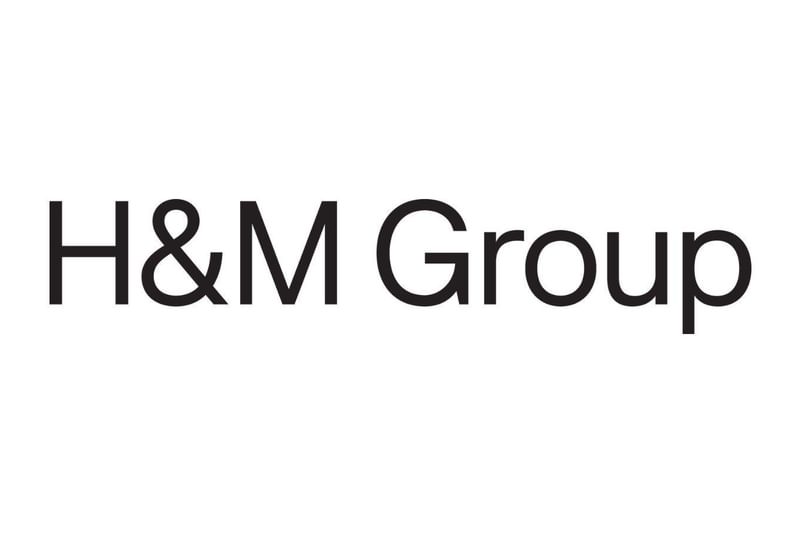
Oil and Gas
As part of our ongoing efforts to refine and strengthen our strategic priorities, the SBTi is pausing its development of an Oil and Gas Standard.
The oil and gas sector
As part of our ongoing efforts to refine and strengthen our strategic priorities, the SBTi is pausing its development of an Oil and Gas Standard.
The SBTi remains committed to enabling the phase out of fossil fuel emissions. We are tackling demand and finance of fossil fuels through the ongoing revision of the Corporate Net-Zero Standard, and the development of the Financial Institutions Net-Zero Standard, the Automotive Sector Standard and the Power Sector Standard.
Tackling emissions from the oil and gas sector is really important - our aim is to enable oil and gas companies to set ambitious science-based targets. We intend to decide further next steps as part of our next scheduled review of our technical workplan which we aim to carry out later this year.
Project participants
The SBTi received technical support from the consultancy Guidehouse.
Expert Advisory Group (EAG): Composed of technical experts from academia, research institutions, non-profits, multilateral organizations and companies interested in setting science-based targets and contributing to the project execution. The SBTi deeply values the dedication and expertise of our specialist team, EAG members and partners. Their contributions are essential to our progress. We aim to continue engaging with the oil and gas EAG and look forward to continued collaboration. The project’s EAG consists of the following individuals:
- Mike Coffin - Carbon Tracker Initiative
- Luciano Caratori - Climate Champions Team
- Ayça Arinan - Consultancy
- Urias Goll - EcoHealth Alliance
- David Neilson - ERM
- Frances Fray - Greenergy International Ltd
- Matthew Ives - GTI Energy
- Dan Gardiner - IIGCC
- Gary Cook - Independent consultant
- Margriet Kuijper - Independent consultant
- Rita Maina - Independent consultant
- Greg Muttitt - International Institute for Sustainable Development (IISD)
- Lorena Perez Bajo - Ipieca
- Sjoukje Van Oosterhout - Millieudefensie / Friends of the Earth Netherlands
- Ella Villen - Neste
- Kelly Trout - Oil Change International
- Diego Hopkins - Petronas
- Louis-Maxence Delaporte - Reclaim Finance
- Shamini Harrington - Sasol
- Dongjae Oh - Solutions For Our Climate (SFOC)
- Michael Lazarus - Stockholm Environment Institute US
- Michelle Horsfield - Sumitomo Mitsui Banking Corporation
- Mike Hemsley - Systemiq / Energy Transitions Commission
- Małgorzata Kasprzak - United Nations Environment Programme - International Methane Emissions Observatory
- Stuart Jenkins - University of Oxford
- Alice Evatt - University of Oxford and Kellogg College
- Saphira Rekker - University of Queensland
- Nils Bartsch - urgewald e.V.
- Yann Robiou du Pont - Utrecht University
- Molly Walton - We Mean Business Coalition
- Linda Htein - Wood Mackenzie
- Clare Anderson - Worley
- Helena Kowarick Spiritus - WWF
- Ricardo Junqueira Fujii - WWF Brazil
Note that the composition of the EAG may change over time, and this list will be updated accordingly. EAG members volunteer in a personal capacity to provide technical advice over the duration of the project. While their expertise helps guide the development process, final content decisions rest solely with the SBTi. As a result, the final output does not necessarily represent or imply endorsement by individual EAG members or their employers.
Development process
To date, we have taken the following actions in the development of the Oil and Gas Standard:
- Project launch: The SBTi Oil and Gas Project started in 2019, and a first draft of a target-setting guidance was released in 2020 for public consultation. Due to the diversity of views on the initial draft and the prioritization of the Corporate Net-Zero Standard, the project was put on hold in 2021 and resumed in 2022.
- Scoping and research phase: In March 2022, we paused commitments and validations for fossil fuel companies and introduced an interim policy to provide clarity during this period. Between May and September 2022, in collaboration with Mott MacDonald we facilitated an external review of the draft science-based methods and guidance, and published the Oil and Gas Project Interim Report, providing an update on the project status. The outcomes of the external review were published in January 2023, identifying technical and methodological issues requiring further research.
- Call for experts and drafting: In November 2023, we called for new EAG applicants. Early in 2024, we published Requests for Proposals to identify consultancies to assist with project deliverables and the new EAG was convened. In March 2024, Guidehouse was appointed as the external consultant to support the project development. The project TOR was updated in December 2024.
- Project pause: In April 2025, the SBTi paused the development of an Oil and Gas Standard to focus on the development of the Corporate Net-Zero Standard and Financial Institutions Net-Zero Standard. The decision was made following a thorough evaluation of our ongoing projects to ensure our work is focused on accelerating the pace of decarbonization and also considering technical viability and market readiness.
In February 2026, the SBTi published the research report “Pathways and Metrics for the Net-Zero Transition in the Oil & Gas Sector,” reflecting the scope and research work conducted over the previous two years. The report is an informative, non-normative resource designed to advance understanding of available pathways and relevant metrics for the oil and gas sector, consistent with achieving net-zero emissions by mid-century. It is intended to inform future target-setting approaches within the SBTi’s sector work.
Initial Development Phase
A Technical Working Group was established in 2019 and consisted of individuals from the following organizations:
Agence de la transition écologique (ADEME)
Aviva Investors
bp
California Resources Corporation (CRC)
Carbon Tracker
Climate Accountability Institute
Eni
Galp
HSBCAviva Investors
I Care
Imperial College London
Repsol
Shell
Total
North Sea Transition Authority
UN Global Compact
University of Queensland Business School
World Benchmarking Alliance
World Resource Institute (WRI)
World Wide Fund for Nature (WWF)
- Mike Coffin - Carbon Tracker Initiative
- Laetitia Pirson - Ceres
- Krista Halttunen - Imperial College London
- Bobbie Thoman - NOCO Energy Corporation
- Heidi Westlake - Origin Energy
- Ramiro Fernandez - Race to Zero
- Deborah Gordon and colleagues - RMI
- Michelle Horsfield - Sumitomo Mitsui Banking Corporation
- John Scott - Zurich Insurance Group
Interim Policy on Fossil Fuel Companies
Due to the developing status of its fossil fuel sector work, the SBTi has paused all commitments and validations of targets from the fossil fuel sector. During this period, commitments will not be accepted from companies or subsidiaries in category 1 below. This policy is effective immediately and removal of previous commitments by oil and gas sector companies has been completed.
The SBTi reserves the right to remove other committed companies that, after careful evaluation, are considered to fall within category 1 below. Companies subject to this policy with targets that were approved prior to the policy's implementation will remain valid for five years from the approval date.
1. Companies that cannot commit to the SBTi until the oil and gas method is finalized.
1.1 Companies with any level of direct involvement in exploration, extraction, mining and/or production of oil, natural gas, coal or other fossil fuels, irrespective of percentage revenue generated by these activities, i.e. including, but not limited to, integrated oil and gas companies, integrated gas companies, exploration and production pure players, refining and marketing pure players, oil products distributors, gas distributors and retailers and traditional oil and gas service companies (except as noted in category 2 below).
2. Companies that can join the SBTi
2.1 Companies that derive less than 50% of revenue from a) sale, transmission and distribution of fossil fuels, or b) providing equipment or services to fossil fuel companies (see 1.1).
2.2 Companies with less than 5% revenue from fossil fuel assets (e.g. coal mine, lignite mine, etc.) for extraction activities with commercial purposes.
2.3 Electric utilities that mine coal for their own power generation.
2.4 Subsidiaries of fossil fuel companies (see 1.1) may join the SBTi if the subsidiary itself is not considered a fossil fuel company.
SBTi evaluates the eligibility of subsidiaries of fossil fuel companies on a case-by-case basis. The subsidiary’s operational model and relevance of its emissions to its parent company will be assessed. Subsidiaries that are established for the sole purpose of setting science-based targets on a portion of a fossil fuel companies’ GHG inventory are not permitted to join SBTi.
For transparency, subsidiaries who set targets but whose parent companies are ineligible will be identified via a footnote in their target wording.
In summary, the SBTi is continuing work on the Oil and Gas Standard. Until this method is final, the following will be put in place:
Companies that fit category 1 with commitments were removed from the SBTi Target Dashboard.
The SBTi will no longer accept commitments and/or validate targets for companies that fit category 1.
Further updates will be shared in due course. In the meantime, additional information is available in our FAQs. For any questions, contact the team at OGSector@sciencebasedtargets.org.
Policy change log
07/26/2022 - policy updated to clarify approach regarding subsidiaries of fossil fuel companies
04/19/2022 - policy updated to improve clarity
03/07/2022 - policy update published
The publication of this policy resulted in the removal of the following companies from the SBTi Target Dashboard:
- Adani Green Energy Ltd.
- Cadent
- CGP PRIMAGAZ
- Enagás S.A.
- FLUXYS BELGIUM
- Grupo Energía Bogotá S.A. ESP
- Halliburton Company
- James Fisher and Sons plc
- McDermott International
- Nabors Industries Ltd.
- Naturgy Energy Group SA.
- OKQ8 AB
- PJSC Tatneft
- Schlumberger Limited
- Snam S.p.A.
- Worley Ltd
Resources
- Guidance on Setting Science-Based Targets for Oil, Gas and Integrated Energy Companies
- Annex A: Non-Energy uses of Petroleum and Gas Products
- Annex B: Rationale for the Approach in Dealing with Overlap Between Oil & Gas and Petrochemical Industry
- Annex D: Fuel Specific Calculations for the Well-to-Wheel Indicator
- Annex F: The Least-Cost Methodology, Carbon Tracker
- Annex H: CH4 Emissions Analysis and Scenarios
For enquiries about the Oil and Gas Standard Development Project, email the team at OGSector@sciencebasedtargets.org
Join the SBTi mailing list for updates on this and other SBTi work, including sector projects.
Latest News
View News


